The 3,000-kilometer Oman coastline provides some of the most beautiful hiking in the Middle East. Hike along cliff-top trails ascending to dramatic vistas of the Arabian Sea, granite wadis and fishing villages. Best time to go hiking is during the months of October till April and Oman is blessed with a marvelous range of terrain, the versatility of the country boasting deserts, mountains and beaches, creates a nature experience like no other.
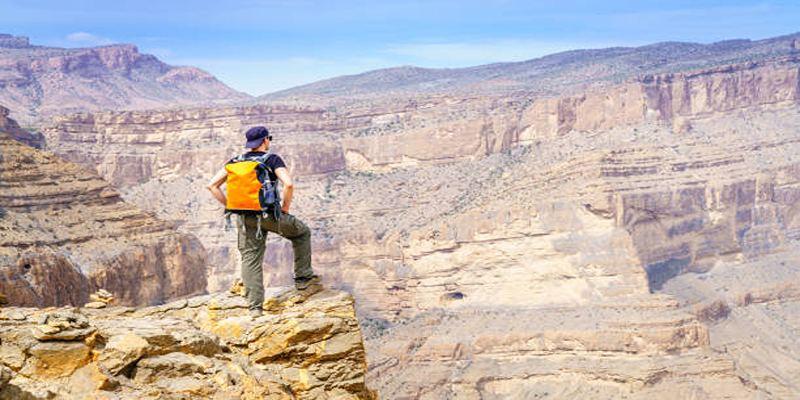
The coastal hiking in Oman is the most dramatic on the Musandam Peninsula, also known as the "Norway of Arabia. This Northern enclave provides fjord-like scenery where 11,000 ft limestone cliffs descend straight into turquoise water.
With breathtaking coastal dells, there are several hiking choices available in the Jebel Harim district. Its primary circuit will bring you to the classic villages and onto the old terraces with spectacular views of the Strait of Hormuz. This average 8 kilometer route can be completed in under 4-5 hours and goes through some Omani settlements where you can get a glimpse of traditional mountain life.
Some of the significant tourist attractions comprise fossil-filled limestone geological structures, 2000 year old petroglyphs and sites which overlook the Iranian shoreline on clear days. The road is clear and marked, though it is always better to ashore a local guide with cultural advice and directions.
To have an easier introduction to the coastline of Musandam, Khasab coastal walk has more comfortable route but also a spectacular view. This 5 kilometer causeway runs along the coast starting in the Khasab town, around deserted coveys and conventional dhow harbors.
The trail has a few swimming spots in crystal-clear coves that make it ideal to mix hiking with the marine activities. Authentic cultural encounters are generally witnessed on the road as local fishermen usually sell fresh catch along the way.
In the southern edges where the Al Hajar Mountains have broken through to encounter the Arabian Sea, hikers find some of the most varied littoral trails in the nation. These paths will include some mountainous landscapes with some seaside destinations and provide different landscapes in one hiking trip.
Wadi Shab is one of the biggest wadi hiking sites in Oman with access to coastal international areas. This is an inland trail, but arrives at a beautiful beach where the wadi gets into the sea. The taxi round trip is 3-4 km and would require about 3 hours including swimming in the wadi pools.
The trail involves a little bit of rock scrambling and walking through water, so it is only moderately difficult. The prize entails underground caves, emerald cisterns and a remote coast which is just ideal to rest upon after hiking.
It is a little-known road connecting two of the most beautiful beaches in Oman. The 7-kilometer path will require 4-6 hours of time depending on photo and swimming stops. The trail goes through the small fishing communities where people still live according to their old way of life.
There are natural rock arches, accessible low tide sea caves, and tidal pools where marine life can be viewed. It is a tricky route at points where the track passes over rocky headlands, necessitating sure-footedness and simple climbing ability.
Sur and the surrounding region (home to traditional dhow construction) can provide very fine coastal hiking. They are the routes that blend the nature with the maritime legacy of Oman.
Although the coastline close to Ras Al Jinz is mainly associated with watching turtles, it is also an excellent place to hike. The 6 kilometer walk in the coast of the turtle reserve to the lighthouse provides impeccable New England Canadian scenery with a little development.
When nesting (May to October), the tourists are likely to come across sea turtles as long as there exists better conservation areas. It is accommodative by all the fitness level due to the level terrain but the sandy surface might be tiresome in a long distance.
This is a medium 8-km walkway linking the ancient port of Sur to the lovely Ayah Beach. In patrol spreads accolade palm groves, conventional villages and over drastic limestone cliffs which command outstanding about the Arabian Sea.
The escape path is developed with 5-6 stops and 5-6 hours of sightseeing activities at ancient watch towers and traditional souks. Local guidebookers can organize tours on dhow-building, which will add cultural value to the walking exercise.
The coastal hiking in Dhofar of Southern Oman is unique, and therefore offers exceptional value, due to the opportunities more likely to be had during the khareef (monsoon) season that are not available anywhere in the Arabian Peninsula.
The oceanic road between Salalah and Mughsail Beach highlights the scenic coastline of Dhofar, natural blowholes, as well as sandy beaches. It takes 6-8 hours to complete this 15 kilometer trail in parts or as a day-long hike.
When monsoon season (July to September) comes, the scene is green, which gives a sharp contrast to hiking in the desert. Borders of the road are filled with frankincense trees, which remind hikers about the ancient history of carrying out trade in Oman.
Mirbat is a historic town and a starting point of various coastal trails revealing nature and archeological attractions. The central circuit is 10 kilometer long and involves exploration of old fortifications, traditional fishing ports and deserted beaches.
The route offers details on the role Dhofar played in the trade of frankincense as well as stunning sea pictures. It has moderate difficulty level so most hikers can manage it although heat may be an issue during the summer period.
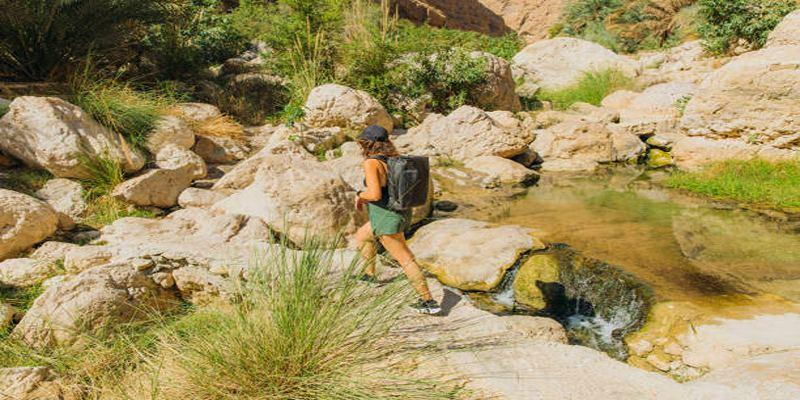
Coastal hiking in Oman requires careful preparation due to the country's unique climate and terrain.Basic needs, like GPS devices or smartphone applications that have offline maps, life safety supplies, and particular devices to stay in touch in a remote location, are considered necessities. Solar protection is an essential item throughout the year, with high-SPF sunscreen, wide-brimmed hats, and UV protective clothing required to counteract the high levels of UV microwave rays associated with altitude and sunlight reflected off the water.
Hydration and nutrition are essential, and must carry more water than they anticipate, at least 3 liters per person on long-day hikes, and body salts to combat the heat and steam. Good hiking boots must have good ankle support and water shoes may be advantageous given routes involving wading or beach entry.
Cultural awareness is also essential because when hiking in Oman it is possible to meet with people living there. Wear simple clothes that cover the shoulders and the knees, even during old weather conditions. Consider personal property and local custom as you move through villages.
Historically established settlements lie along a lot of the trails, and it is deemed improper to take photos of individual people without their consent. Basic knowledge of greetings in Arabic will increase communication with communities in Oman and positively show respect to the Omani.
Oman’s coastal hiking trails offer stunning variety, from Musandam’s fjord-like scenery to Dhofar’s lush, monsoon-green hills. Underlying nature and cultural heritage form in every path. Select your adventure and choose the trails that compare to your level of fitness and interests. For remote or challenging hikes, use local guides to increase safety and cultural awareness. Respect local customs, and you will produce memorable moments inside this marvelous place.
 TOP
TOP
Discover the key differences between Pilates and Yoga to choose the best path for your wellness.
 TOP
TOP
Learn the hidden risks of silent heart disease and how to protect your heart health.
 TOP
TOP
Optimize cycling comfort and performance with expert foot care and proper shoe choices.
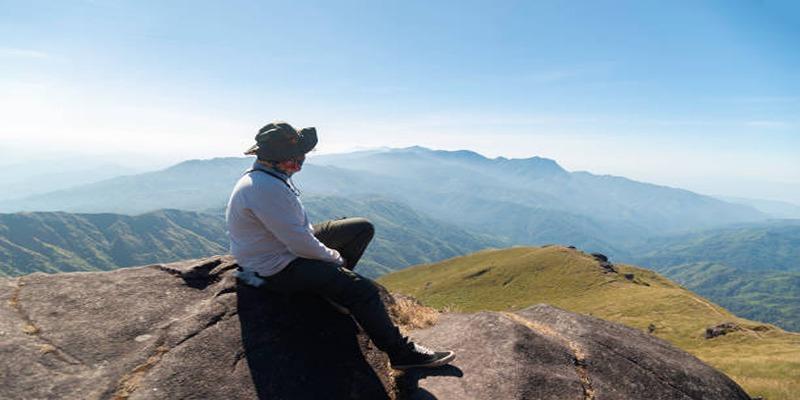 TOP
TOP
Discover the top 5 travel goals to achieve in 2025 and ignite your wanderlust with must-visit destinations and unforgettable experiences worldwide.
 TOP
TOP
Discover Paris beyond the usual landmarks with unique attractions and hidden gems that reveal the city's authentic charm.
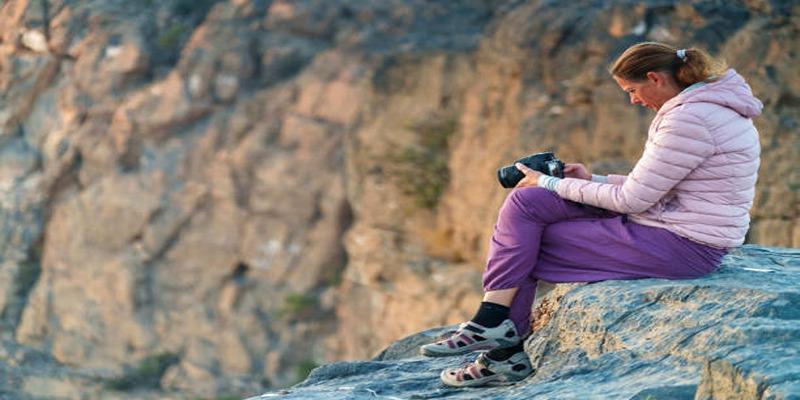 TOP
TOP
Oman’s Grand Canyon, a breathtaking destination offering stunning views, cultural insights, and adventurous hiking trails.
 TOP
TOP
How Macumba blends ancient traditions and innovation at La Route du Rock, offering transformative musical experiences that unite and inspire.
 TOP
TOP
Learn key facts about pediatric craniofacial surgery, common conditions, procedures, recovery, and emotional support that improve children’s health outcomes.
 TOP
TOP
Explore how eczema increases the risk of asthma and allergies, key risk factors, immune dysfunction, and management strategies for better health.
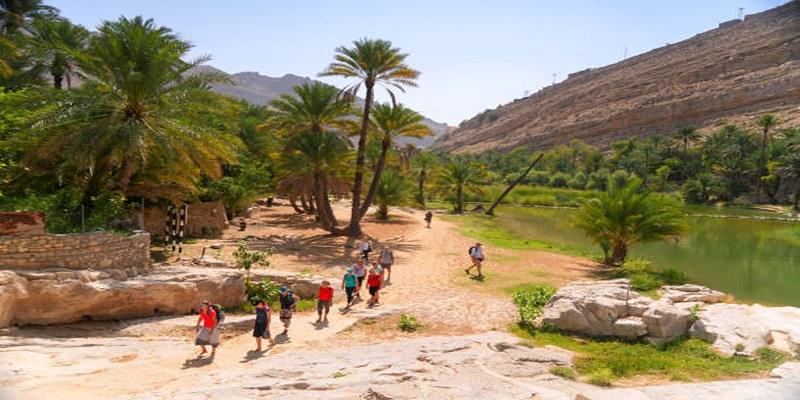 TOP
TOP
Oman’s breathtaking coastal hiking trails, blending stunning nature and rich culture. Plan your perfect adventure today!
 TOP
TOP
Learn what a promissory note in real estate is, how it works, its importance, and how it differs from a mortgage in detail here
 TOP
TOP
Discover how hormones affect acne, dryness, and skin health, and learn practical tips to restore balance naturally.